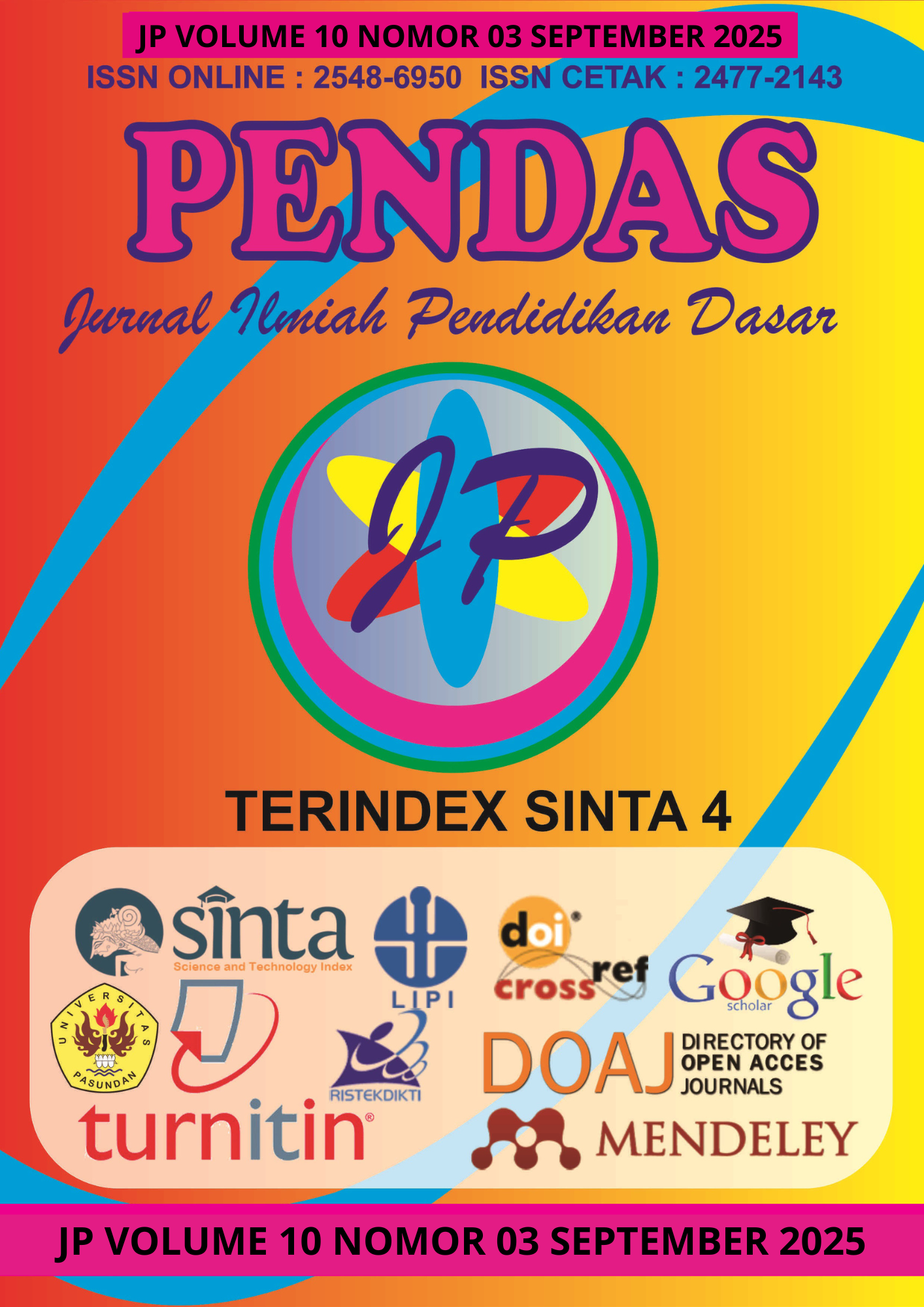MANAJEMEN PEMBELAJARAN UNTUK MENINGKATKAN LITERASI SISWA DITINGKAT SEKOLAH DASAR
DOI:
https://doi.org/10.23969/jp.v10i3.29807Keywords:
evaluation, literacy, learning management, elementary school, learning strategiesAbstract
The low literacy rate of elementary school students is a serious problem in education, especially in an era that demands reading and writing skills as the foundation of learning. Literacy plays a crucial role in basic education, yet many elementary school students still struggle to achieve adequate literacy competencies. To address this issue, a systematic approach is needed to improve elementary school student literacy, focusing on planning, implementation, and evaluation of learning. The research method used was a literature review and analysis of secondary data from various sources, such as scientific journals, government reports, and case studies related to learning management and literacy practices at the elementary school level. The results showed that structured learning management, including the development of a literacy-based curriculum, the implementation of active learning strategies (e.g., guided reading, group discussions, and interactive storytelling), and the use of portfolio-based assessments, significantly improved students' literacy skills. Furthermore, supporting factors such as ongoing teacher training, parental involvement in literacy activities, and the availability of diverse and easily accessible learning resources also play an important role in creating a learning environment that supports literacy development. This study concludes that a holistic and sustainable approach to learning management, which combines evidence-based strategies and stakeholder collaboration, can be an effective solution to improving literacy at the elementary school level. By emphasizing the interconnectedness of curriculum design, teaching methodology, and assessment frameworks, this study underscores the potential of well-managed learning systems to bridge the literacy gap among young learners. Further research could explore the long-term impact of these strategies on students' academic achievement and lifelong learning habits.
Downloads
References
Black, P., & Wiliam, D. (1998). Assessment and Classroom Learning. Assessment in Education: Principles, Policy & Practice.
Mulyasa, E. (2016). Manajemen dan Kepemimpinan Kepala Sekolah. Jakarta: Bumi Aksara.
Rencana Strategis (Renstra) Literasi SD Harmoni Cianjur.
Standar Operasional Prosedur (SOP) LSP P-1 SD Harmoni.
Undang-Undang No. 20 Tahun 2003 tentang Sistem Pendidikan Nasional.
Permendikbud No. 23 Tahun 2015 tentang Penumbuhan Budi Pekerti.
Permendikbud No. 21 Tahun 2016 tentang Standar Isi Pendidikan Dasar dan Menengah.
Program Kerja Tahunan SD Harmoni Cianjur.
Panduan Gerakan Literasi Sekolah (GLS) Kemendikbud.
Downloads
Published
Issue
Section
License
Copyright (c) 2025 Pendas : Jurnal Ilmiah Pendidikan Dasar

This work is licensed under a Creative Commons Attribution 4.0 International License.














































